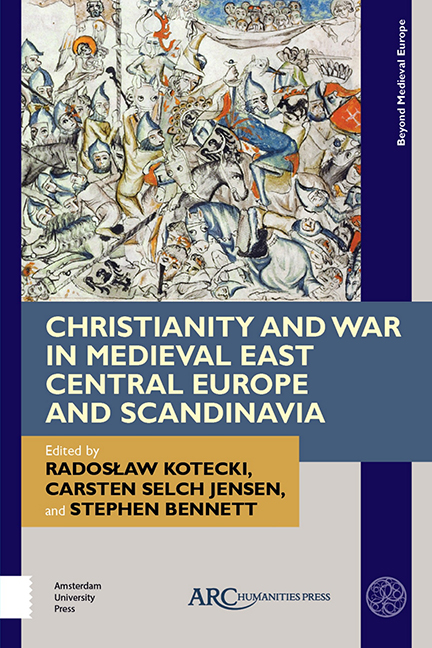Chapter 2 - Thirteenth-Century Hungarian Prelates at War
Published online by Cambridge University Press: 27 May 2021
Summary
THIS CHAPTER AIMS to examine the participation of Hungarian prelates in warfare in the thirteenth century. Members of the higher clergy of the Hungarian realm appear in sources in connection with wars and conflicts as early as the eleventh century, though only occasionally are they presented as bellatores. In the texts, prelates are shown mostly in the role of peacemakers, handling tensions amongst the members of the Árpádian dynasty or performing liturgical or advisory tasks. This image, however, varies greatly across sources from the 1200s. The prelates are shown there as playing an active role—even initiating conflicts. Beside their function as royal emissaries within and outside the Hungarian realm, certain prelates supported one side or another in dynastic or oligarchic conflicts of power, especially in the second half of the century. It is perhaps of even greater importance that this did not merely happen in their position as men of God; several bishops acted as warlords, for instance, and defended castles against sieges. This is a phenomenon that mostly went unrecorded before the thirteenth century.
If one intends to examine the situation in Hungary concerning the relationship of the higher clergy to war, certain questions must be addressed. First, the clergy's general and widely known prohibition on bearing of arms—along with the possible exceptions—has to be taken into consideration. The canonical regulations were known quite early in Hungary, yet certain new phenomena emerged in the thirteenth century, most notably the Mongol invasion of 1241–1242. This left little option but for Hungarian prelates to defend themselves and the realm; it was a “just cause,” when “necessity knew no law.” It should be emphasized, however, that the prelates did not fight the enemy because they were bound to do so as royal vassals since there were no feudal obligations in the Árpádian-era in Hungary. The Hungarian kings had influence on the designation of the prelates of their realm, and the archbishops and bishops sat alongside the counts as members of the royal council. The prelates were seemingly obliged to send their troops to the kings’ aid when it was required, but this was not driven by regalia.
- Type
- Chapter
- Information
- Publisher: Amsterdam University PressPrint publication year: 2021



